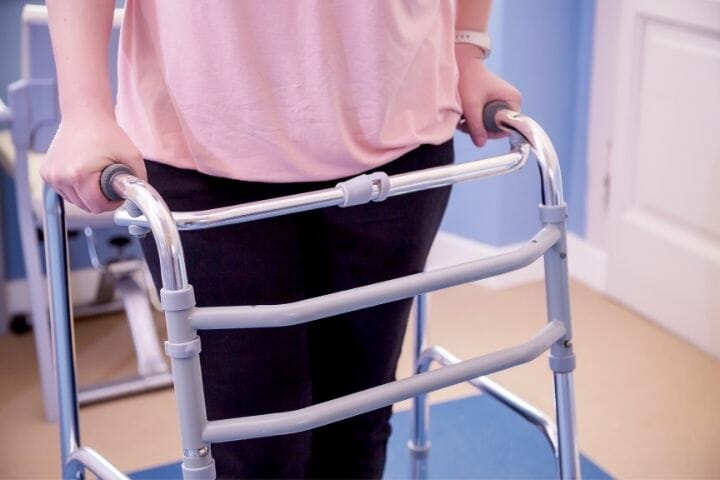In this guide, we will share some after surgery care tips to protect yourself and your wound and to recover as quickly as possible.
Contents
When people’s surgery is over, they look for professional advice for a quick after-surgery healing. Most people become anxious to get back to their regular routine as soon as possible.
These people follow proper guidance from the doctors, and as a result, they recover quicker than others who don’t follow any after-surgery care tips.
People have surgery for the greater good, but the side effects are long recovery periods. However, your recovery depends on the type of your surgery and how much care you get after surgery.

It takes weeks to recover from surgery; it might take a few months to recover from a few complex procedures. In some unfortunate cases, the surgery may cause complications such as too much bleeding, infection, or accidental injury.
However, if you follow professional after-surgery care tips, you can avoid these complications.
How Long Should You Rest After Surgery?
The recovery period for a person solely depends on the type of operation he or she goes through. The recovery duration varies from a week to a few months for some medical procedures.
Some people may have to stay in the hospital for a few days to detect complications. According to a study, some people heal quickly and easily, while some need extra care. You should remain patient in your healing process.
How Do You Take Good Care of Yourself After Surgery?
Following your doctor’s instructions for after-surgery care is a must. However, more tips on after-surgery care will help you get easy, comfortable, and fast recovery includes:
Take your medication on time to control pain.
Surgery is painful; some weeks after the surgery, you may still feel pain. Because of that, your doctor will prescribe you a pain-relieving medication to control pain. The doctor may tell you to take medicines at home.
These medications are very efficient in preventing pain. If you find it challenging to manage your pain, you should tell your doctor and get additional measures. Many doctors suggest their patients exercise to improve their mobility after surgery; doctors also advise taking the pain medication 30 minutes before exercising.
Drink and eat healthy and properly
You should stock your pantry before you get surgery so that after surgery, you don’t have to worry about your diet. Experts advise maximizing the protein and minimizing sugar-based foods.
Older people and diabetes patients should pay extra attention to their diet and maintain balanced sugar levels at all stages of surgery. Most people do not feel like drinking or eating after surgery.
If you experience loss in appetite, you should seek help from an expert dietitian or nutritionist to help you get a balanced diet.

Inspect your incision
You should inspect your incision several times a day. It can help you determine and stop developing any infection or blood clotting. You should check the color of your incision and how often you get wound drainage.
Cough and sneeze carefully.
Coughing and sneezing are not good for your abdominal incision. It can seriously harm your incision if you sneeze or cough in the wrong manner.
You should apply pressure to your new incision when you feel like sneezing or coughing. You should also apply pressure when you use the bathroom.
Get moving
Your doctor or surgeon may tell you to get moving after a few days or right after the surgery. Walking can help too. Experts suggest taking a quick walk after hours and two can reduce the risk of severe complications. You should participate in muscle-strengthening exercises to get back on your full throttle.
Avoid the sun
Study shows that the sun can make the healing scar of a person darker and more noticeable. You should avoid going outside in the sun for about six months; however, you can cover your scar with a protective cloth when you go out in the sun.
Look for the signs of a blood clot.
Blood clots can occur due to air contact to blood in the vein, and it may be from improper bandaging. If you see any signs that indicate a blood clot, you should immediately call the doctor. Some signs you should look for include:
- Skin feeling hot to the touch
- Pain and swelling
- Discolored skin
- Veins start to appear larger than normal
- Heavy ache
- Tenderness or redness of the skin
Look for the signs of infection.
You should look for the signs of infection around your wound or incision. If you experience any symptoms of infection, get medical help right away.
- A change in the incision size
- A green or yellow discharge that is increasing
- Redness or hardening of the surrounding area
- Fever
- Increase or unusual pain
- A change in discharge odor
- Excessive bleeding that has soaked through your dressing

Prevent infection
You can prevent infection by cleaning your incision regularly. To remove the crust, you should gently wash the incision with soap and water. You should not use hydrogen peroxide, rubbing alcohol, or iodine to clean the incision.
These materials can harm the tissues and cause your wound to take more time to heal. You should not soak or scrub the wound. Doctors suggest air-drying your incision, or you can also pat it dry with a clean towel before you reapply fresh dressing.
What Should You Avoid After Surgery?
Doctors suggest avoiding smoking after surgical procedures to reduce the availability of oxygen in a person’s body and reduce the recovery rate. Smoking after surgery can also increase the chances of blood clotting.
You should also avoid doing any heavy work or activity such as doing laundry and using stairs. Your doctor may order you to limit your movement. You should avoid wearing tight clothes and poor shoes. You should also avoid any unhealthy food that causes problems in your healing process.

Wrap Up
Everyone heals at their own rate, be patient with yourself as it will take some time before you are at full strength again. Doctors or surgeons may order you to rest. If you feel alone or isolated, you can ask your friends or family to offer some company.
However, you should consider the rules of the hospital. You can get many valuable tips on your recovery from this article; follow them to ease and accelerate your recovery rate.
